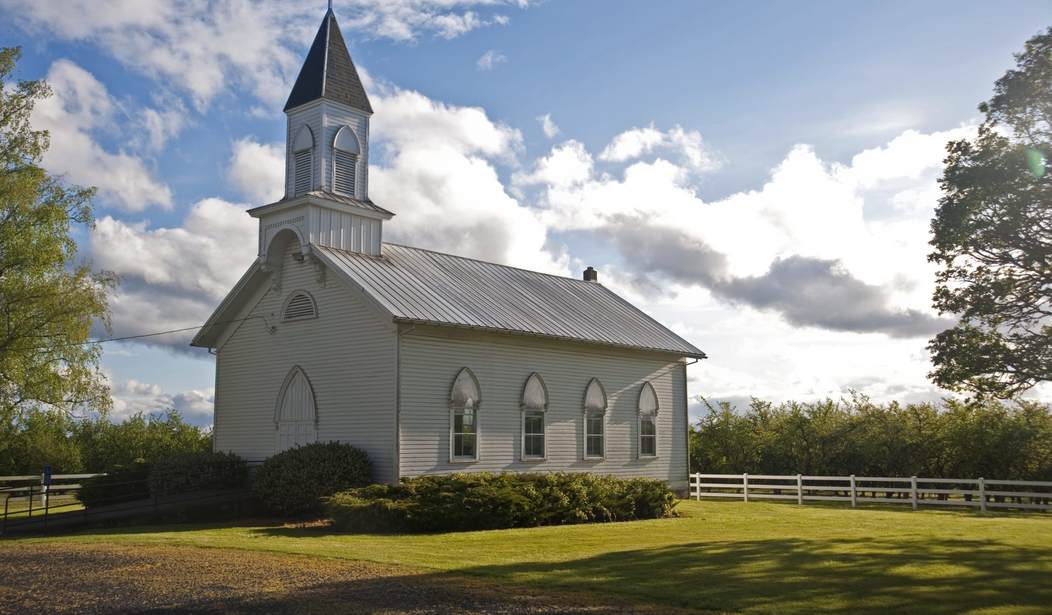Several years ago, while we were vacationing in Florida, our family visited a church and inadvertently wandered into what can only be described as the last rites being administered to the congregation. Instead of meeting in the sanctuary of the beautiful, historic church, members assembled in the basement — because they could not afford to pay to air condition the entire building. We awkwardly sat through an uncomfortable meeting at which the church members (the majority over 50) agreed to rent out the main part of the building on Sundays to a younger group of church members who had broken off from the main church. It appeared that neither side would compromise on the worship style and church growth philosophy. There may have been other, more substantive doctrinal differences at play — we were only privy to the final vote on what had obviously been a long, drawn-out family squabble — but the sad episode gave us insight into the dangers of a church that does not encourage or appreciate generational diversity.
Not very long after that church visit, our family found it necessary to change churches. It was an agonizing decision after nearly 20 years at the same church. We had spent the early years of our marriage immersed in the seeker-sensitive mega church culture, raising our children alongside other families in similar circumstances. We found a new church home in a much smaller, more traditional congregation.
Believing that church should be a full participation sport with no bench sitters, our family immediately plunged into the full range of activities — youth group for the kids, Sunday school for everyone, church Sunday mornings and evenings, and midweek prayer meeting.
Those early months of midweek prayer meetings were grueling. I had been out of the habit of spending time in corporate prayer and the discipline of praying for people I didn’t know was a challenge for my media-saturated diminished attention span. At one of the first prayer meetings though, a prayer request jolted me out of my inattention and made me realize that we had spent the last 20 years more or less in an age-segregated bubble: “I would appreciate your prayers. I have to turn my wife every few hours to keep her from getting bed sores and things are kind of hard right now.” The man, in his 80s, was caring for his bedridden wife who had Alzheimer’s disease at home and struggled to keep up with the demands. I was touched and heartbroken. I was inspired by the man’s love and dedication to his wife and saddened by his suffering.
But I was also saddened at what we had missed in our years of age-segregated church.
Over the next months we would hear many other prayer requests and praises: dying and disabled spouses; pregnancies, miscarriages, and births; cancer and healing; children gone astray — the life of the church from conception to the grave shared among brothers and sisters in Christ. We never realized how much we had missed by cloistering ourselves in age-segregated church activities — in a church that went out of its way to meet everyone’s needs by providing programs and classes tailored to everyone’s specific stage of life. Though we thoroughly enjoyed our time socializing and learning alongside other families who were at the same stage of life, we missed out by not availing ourselves of the wisdom of older Christians who had the perspective of many years of faithfully walking with Christ, succeeding at marriage, and raising godly children. We also missed out on the opportunity to serve and teach younger families as we matured and grew in our faith.
There is a tendency in the 21st century for Americans to expect the church to cater to their every need and to do it in a format that suits their personal preferences. Church members demand a worship style and music that panders to their specific tastes and mostly seek opportunities to spend time with those whose life circumstances match their own. Seeking to please the younger generation that is increasingly eschewing church membership, the church has often given in to the demands and as a result, has become increasingly segregated by age.
But age segregation is not the biblical model for the church — nor is the selfish desire to have the church cater to one’s personal tastes.
In contrast, Titus 2 gives us the biblical pattern for inter-generational churches:
You must teach what is in accord with sound doctrine. Teach the older men to be temperate, worthy of respect, self-controlled, and sound in faith, in love and in endurance. Teach the older women to be reverent in the way they live, not to be slanderers or addicted to much wine, but to teach what is good. Then they can train the younger women to love their husbands and children, to be self-controlled and pure, to be busy at home, to be kind, and to be subject to their husbands, so that no one will malign the word of God. Similarly, encourage the young men to be self-controlled. In everything set them an example by doing what is good. In your teaching show integrity, seriousness and soundness of speech that cannot be condemned, so that those who oppose you may be ashamed because they have nothing bad to say about us. (Titus 2:1-8)
Thabiti Anyabwile, Pastor of the First Baptist Church of Grand Cayman explains in a post at the Gospel Coalition what happens when the biblical model breaks down:
…20-somethings tend to learn mostly from other 20-somethings. They’re cut off from the perspective and wisdom gained by being a generation or two older. They develop 20-something solutions to what will likely either be 40-something foundations or problems. They make courtship and dating decisions that look really cool at 20 but turn out to be short-sighted at 40. They make purchasing decisions that seem life-giving at 20 that turn into major burdens at 40. I think I see lots of 20-somethings (guys in particular) running the race without self-control, self-control that older members could and should help them gain.
Meanwhile, the 40-somethings work through marriage, parenting, and career issues without the longer view of 60-somethings. As quiet as it’s kept, knowing how to be a husband, wife or parent doesn’t come to us by osmosis. We have to be taught how to love a wife, how to respect a husband, and how to raise our children in the fear and admonition of the Lord. And sometimes those callings get as nuts-and-bolts as learning how to cook, how to discipline, how to argue and how to make up. During this period, our 30- and 40-somethings develop or continue habits that either help or hurt. Sadly, many will do so without the wisdom that comes from more seasoned experience. Consequently, they take the same lumps others could have helped them avoid. Or they “make it” through that middle-age season via a series of trial and error experiments.
Anyabwile says we sometimes act as if older members have no vital role in the church.
We have seen first-hand the carnage that can result when churches fail to value their “senior saints.” Our church has grown exponentially in the last decade as senior members of other area churches, feeling marginalized by the new youth-focused paradigm in their congregations, sought our church’s more traditional worship style and its appreciation for the wisdom of older members. It is heartbreaking to hear the stories of Christians who met and married, raised their children in a church and supported it financially for decades, only to be told that the church was going in a different direction — in their quest build an attractional youth model, they needed to de-emphasize the role of the elder members of the church. Sadly, our youth-worshiping culture often emphasizes the needs of young people, to the great detriment of the church.
Proverbs says that “Gray hair is a crown of glory; it is gained in a righteous life” (Proverbs 16:31).
There is nothing wrong or unbiblical about personal preferences and I don’t believe that God has a preferred music or worship style — his requirement is that we “must worship in spirit and truth” (John 4:24). And it’s clear that God’s desire is for mentoring and discipleship from the older generation to the younger. Your church’s musical style or your preferences on other non-essential issues aren’t the most important considerations — most preferences are only a small part of what’s of value in a church. It’s important to consider what you lose when you attend a church that caters specifically to the needs of your generation at the expense of the older generation (and vice versa). Whether you’re a millennial or an octogenarian, choosing to “count others more significant than yourselves” (Philippians 2:3) in the area of music or other non-essential matters is worth the sacrifice if it means conforming to the biblical standard of age-diverse discipleship in your church.












Join the conversation as a VIP Member